Suzuki S-Cross vs Toyota Yaris Cross - Differences and prices compared
Compare performance (110 HP vs 130 HP), boot space and price (21800 £ vs 23700 £ ) at a glance. Find out which car is the better choice for you – Suzuki S-Cross or Toyota Yaris Cross?
Costs and Efficiency:
When it comes to price and running costs, the biggest differences usually appear. This is often where you see which car fits your budget better in the long run.
Suzuki S-Cross has a slight advantage in terms of price – it starts at 21800 £ , while the Toyota Yaris Cross costs 23700 £ . That’s a price difference of around 1929 £.
Fuel consumption also shows a difference: Toyota Yaris Cross manages with 4.50 L and is therefore somewhat more efficient than the Suzuki S-Cross with 5.30 L. The difference is about 0.80 L per 100 km.
Engine and Performance:
Power, torque and acceleration are the classic benchmarks for car enthusiasts – and here, some clear differences start to show.
When it comes to engine power, the Toyota Yaris Cross has a a bit edge – offering 130 HP compared to 110 HP. That’s roughly 20 HP more horsepower.
In terms of top speed, the Suzuki S-Cross performs slight better – reaching 185 km/h, while the Toyota Yaris Cross tops out at 170 km/h. The difference is around 15 km/h.
Space and Everyday Use:
Beyond pure performance, interior space and usability matter most in daily life. This is where you see which car is more practical and versatile.
Both vehicles offer seating for 5 people.
In curb weight, Toyota Yaris Cross is hardly perceptible lighter – 1180 kg compared to 1280 kg. The difference is around 100 kg.
In terms of boot space, the Suzuki S-Cross offers slight more room – 430 L compared to 397 L. That’s a difference of about 33 L.
In maximum load capacity, the Suzuki S-Cross performs somewhat better – up to 1230 L, which is about 133 L more than the Toyota Yaris Cross.
When it comes to payload, Toyota Yaris Cross noticeable takes the win – 510 kg compared to 405 kg. That’s a difference of about 105 kg.
Who comes out on top?
Overall, the Toyota Yaris Cross shows itself to be barely ahead and secures the title of DriveDuel Champion.
It convinces with the more balanced overall package and proves to be the more versatile choice for everyday use.

Toyota Yaris Cross
Costs and Consumption
View detailed analysis
Engine and Performance
View detailed analysis
Dimensions and Body
View detailed analysis
Suzuki S-Cross
The Suzuki S-Cross is a neatly packaged crossover that puts everyday practicality ahead of showy theatrics, offering a comfortable cabin and predictable handling that suit family life and weekend errands alike. It’s not a headline-grabber, but its sensible packaging, low-key charm and reputation for reliability make it a shrewd choice for buyers who prefer smart value over flash.
details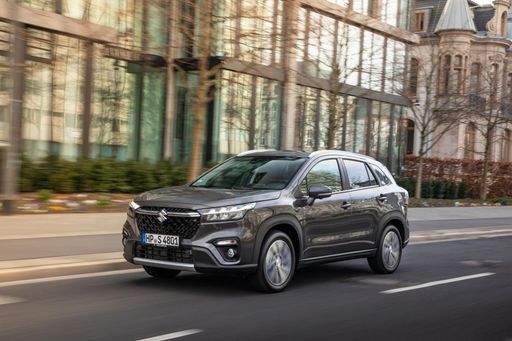
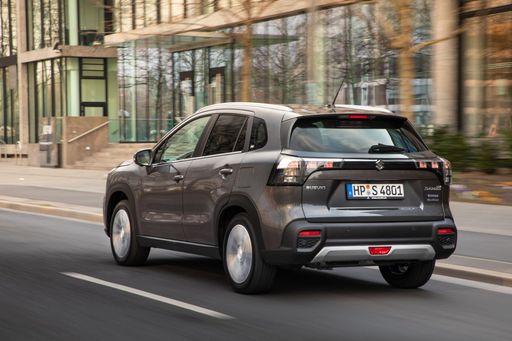
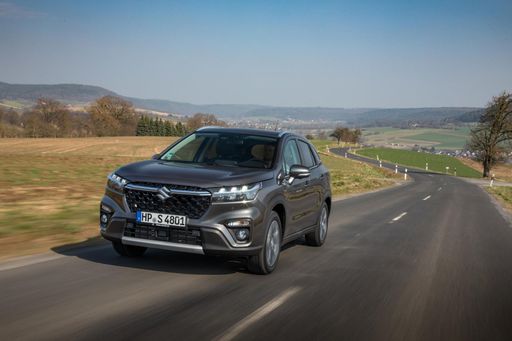
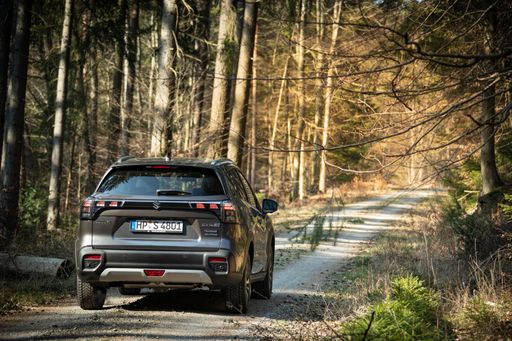
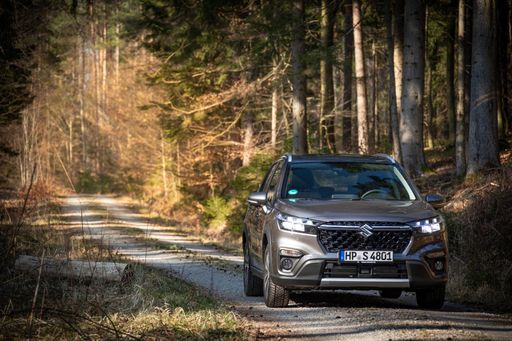
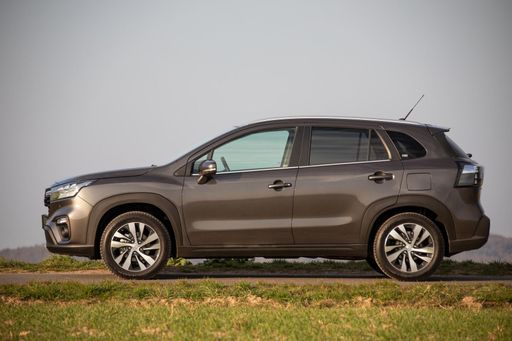
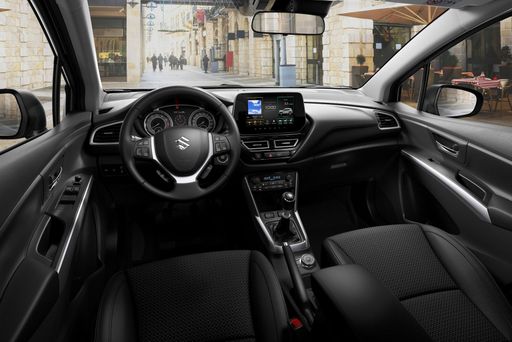
Toyota Yaris Cross
The Toyota Yaris Cross takes the jaunty personality of the Yaris and gives it a taller stance and a bit more practicality, so you get city-friendly agility with added SUV presence. It’s easy to live with, economical on the daily grind, and smartly packaged — a sensible pick for buyers who want fuss-free transport with a touch of character.
details






Costs and Consumption |
|
|---|---|
|
Price
21800 - 34200 £
|
Price
23700 - 34300 £
|
|
Consumption L/100km
5.3 - 5.8 L
|
Consumption L/100km
4.5 - 4.8 L
|
|
Consumption kWh/100km
-
|
Consumption kWh/100km
-
|
|
Electric Range
-
|
Electric Range
-
|
|
Battery Capacity
-
|
Battery Capacity
-
|
|
co2
119 - 138 g/km
|
co2
101 - 108 g/km
|
|
Fuel tank capacity
47 L
|
Fuel tank capacity
36 L
|
Dimensions and Body |
|
|---|---|
|
Body Type
SUV
|
Body Type
SUV
|
|
Seats
5
|
Seats
5
|
|
Doors
5
|
Doors
5
|
|
Curb weight
1280 - 1385 kg
|
Curb weight
1180 - 1290 kg
|
|
Trunk capacity
430 L
|
Trunk capacity
320 - 397 L
|
|
Length
4305 mm
|
Length
4180 mm
|
|
Width
1785 mm
|
Width
1765 mm
|
|
Height
1580 mm
|
Height
1595 mm
|
|
Max trunk capacity
1230 L
|
Max trunk capacity
1097 L
|
|
Payload
395 - 405 kg
|
Payload
485 - 510 kg
|
Engine and Performance |
|
|---|---|
|
Engine Type
Petrol MHEV
|
Engine Type
Full Hybrid
|
|
Transmission
Manuel, Automatic
|
Transmission
Automatic
|
|
Transmission Detail
Manual Gearbox, Automatic Gearbox
|
Transmission Detail
CVT
|
|
Drive Type
Front-Wheel Drive, All-Wheel Drive
|
Drive Type
Front-Wheel Drive, All-Wheel Drive
|
|
Power HP
110 HP
|
Power HP
116 - 130 HP
|
|
Acceleration 0-100km/h
-
|
Acceleration 0-100km/h
10.7 - 11.3 s
|
|
Max Speed
180 - 185 km/h
|
Max Speed
170 km/h
|
|
Torque
235 Nm
|
Torque
-
|
|
Number of Cylinders
4
|
Number of Cylinders
3
|
|
Power kW
81 kW
|
Power kW
85 - 96 kW
|
|
Engine capacity
1373 cm3
|
Engine capacity
1490 cm3
|
General |
|
|---|---|
|
Model Year
2025
|
Model Year
2024 - 2025
|
|
CO2 Efficiency Class
D, E
|
CO2 Efficiency Class
C
|
|
Brand
Suzuki
|
Brand
Toyota
|
What drive types are available for the Suzuki S-Cross?
The Suzuki S-Cross is available as Front-Wheel Drive or All-Wheel Drive.




